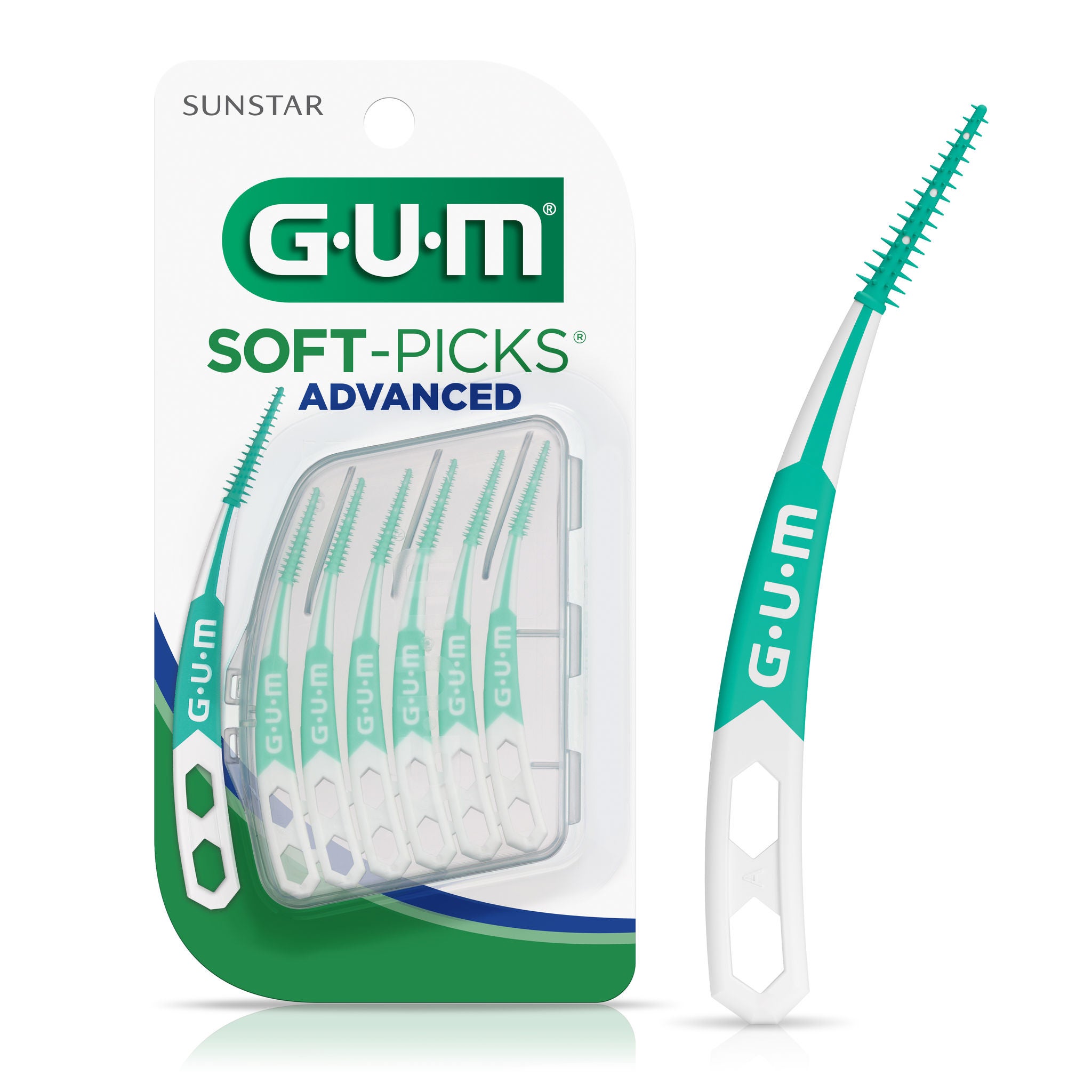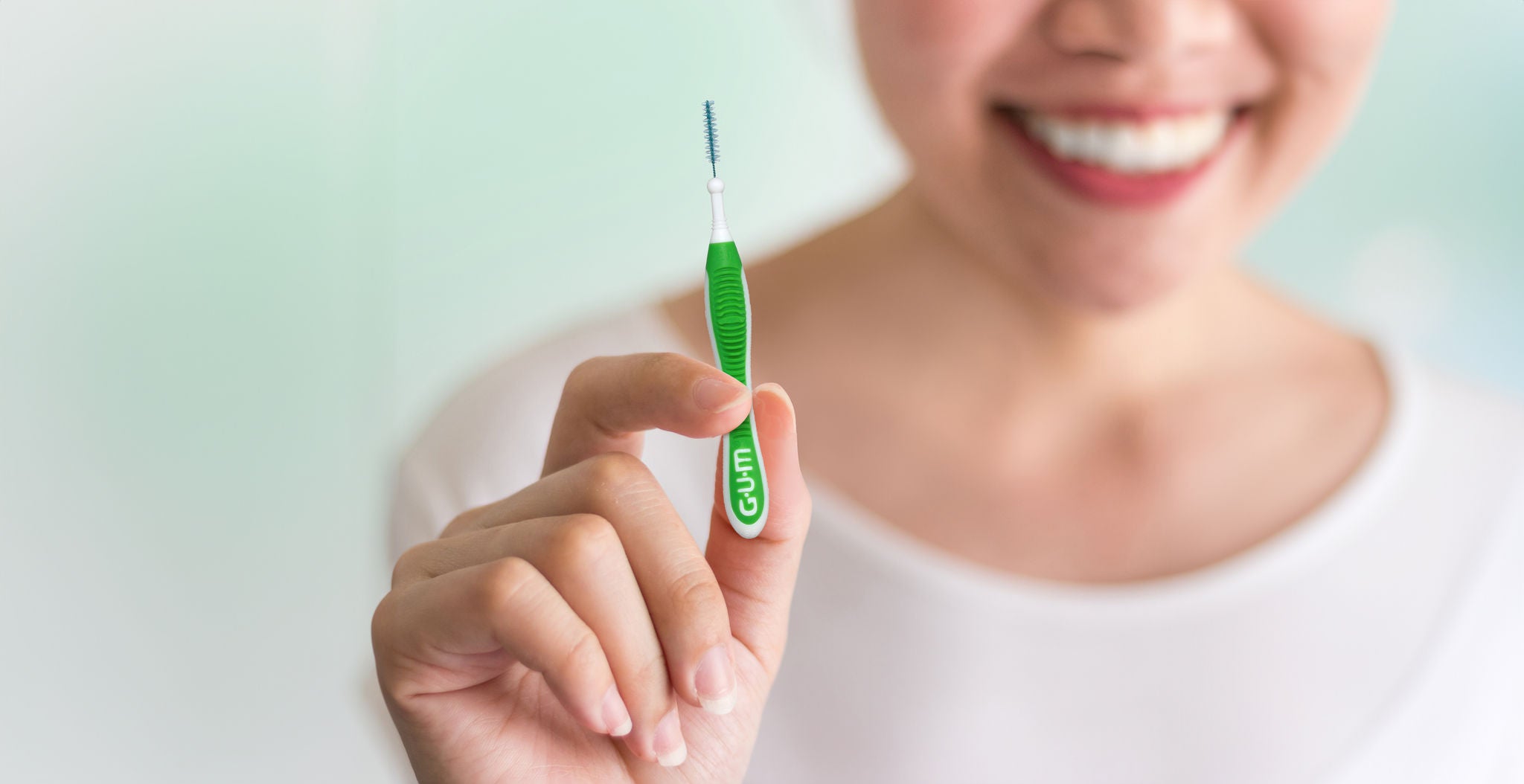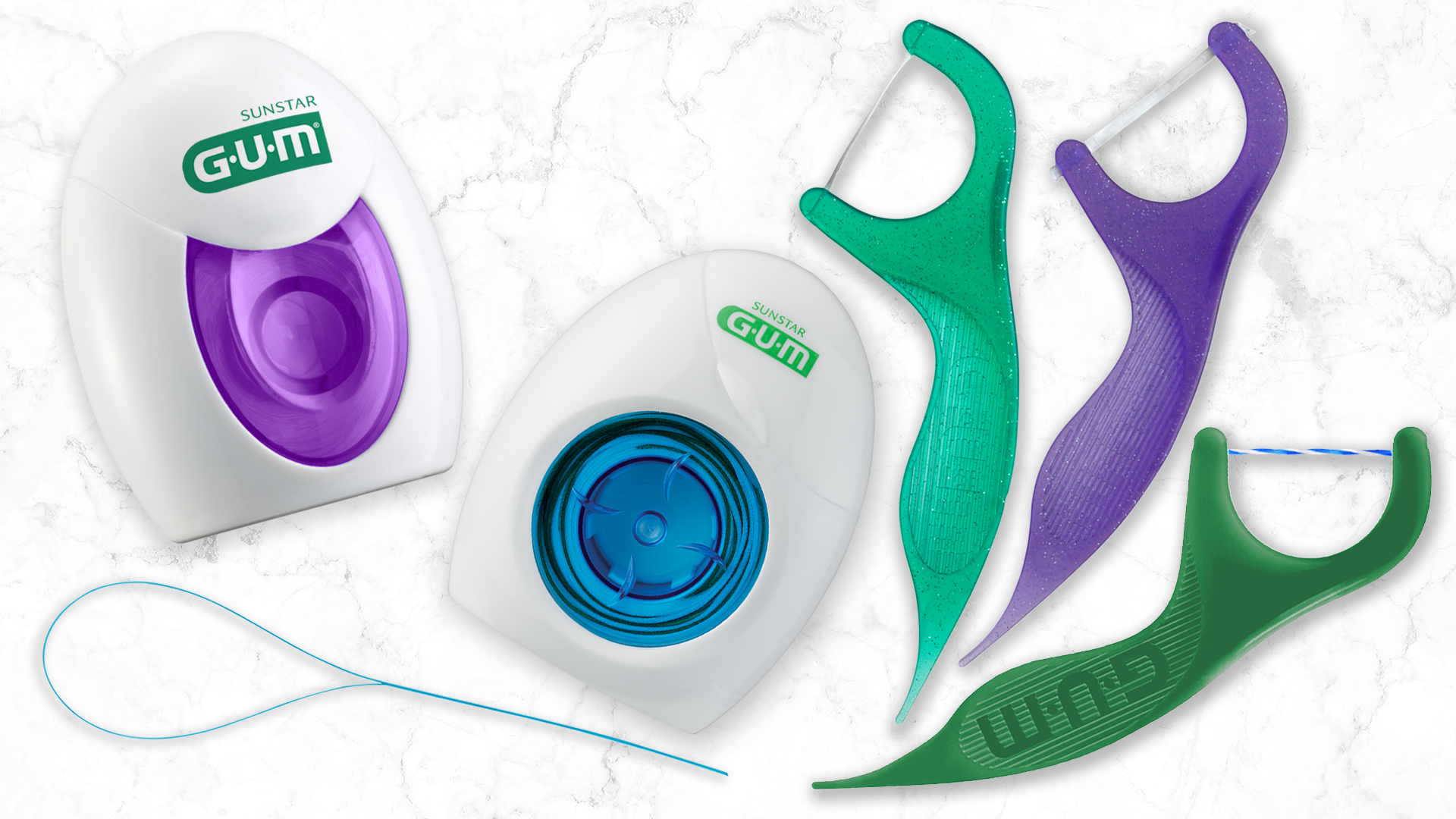
Gingivitis: Why Caring for Your Gum Health Matters
Find out what role your gums play and why it’s so important to keep them healthy
Like many people, you’ve probably been told to look after your teeth from a young age. This is good advice – to stay healthy and strong, your teeth need proper oral care throughout your life. But what about your gums? You don’t hear much about them, but they’re just as important, if not more! Read on to find out why.

Gum health is the gateway to general health
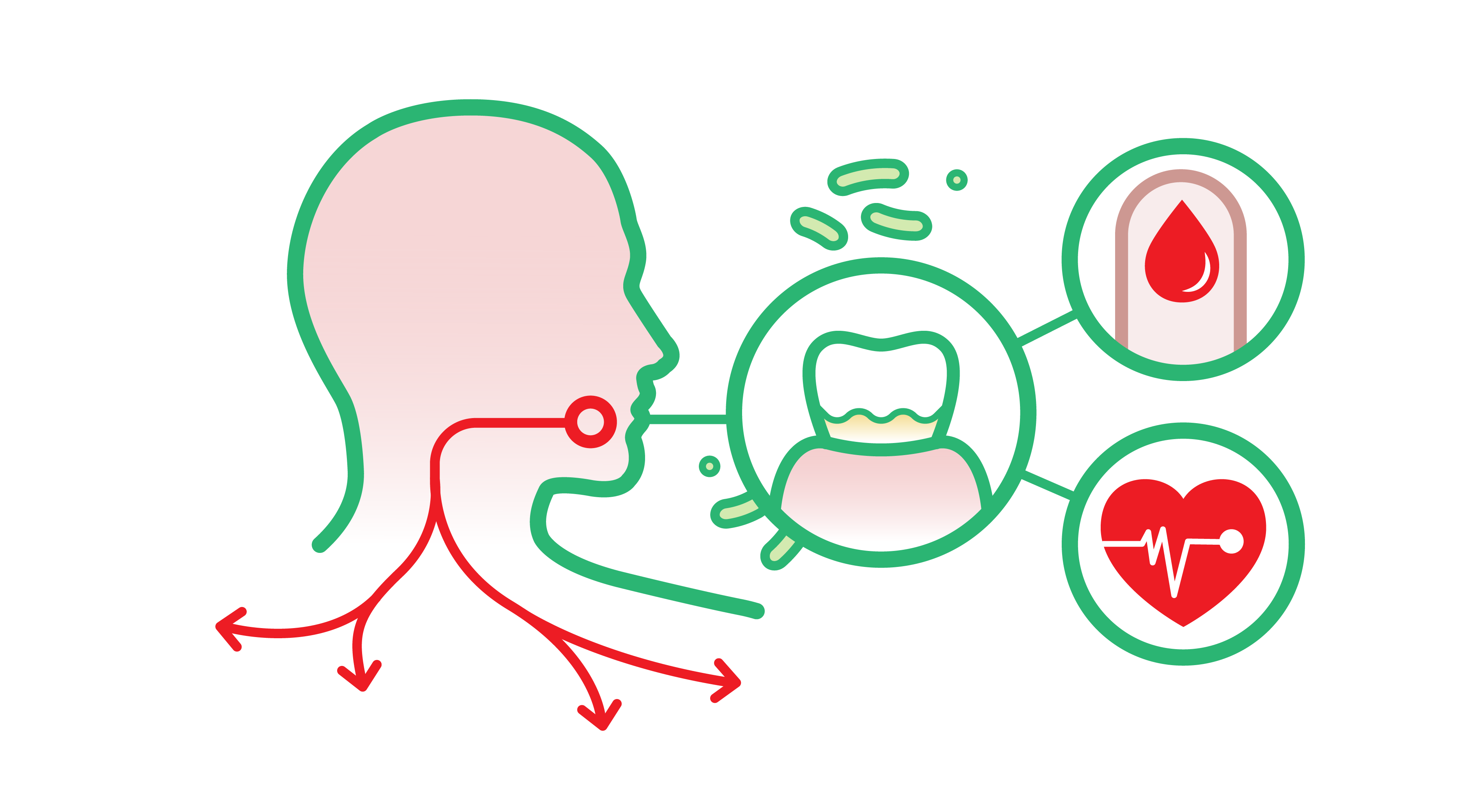
Next to teeth, gums can come across as idle bystanders. But appearances can be deceiving! They are vital to your oral and overall health [1]. Starting with oral health, gums have a central role. Indeed, this soft and delicate mucosal tissue helps support the teeth and protect deeper tissues. When healthy, they are tightly bound to the bone beneath them and form a seal around the neck of the teeth. Without them, teeth and underlying tissue would be much more vulnerable [2].
But gums are also essential for your general health. As stated in the World Oral Health Report (2003) and supported by further evidence, there is a solid bi-directional relationship between oral and overall health [3]. Wondering how that’s possible? Well, think of it this way: when gums are healthy, they form a seal around each tooth, acting as a physical barrier against harmful bacteria. As such, they help prevent these from entering the bloodstream and making their way to other areas of the body where they can cause inflammation and potentially aggravate or increase the risk of developing systemic conditions such as diabetes, heart disease, or stroke [4]. We weren’t kidding when we said gums were important for your health.
The slippery slope from gingivitis to periodontitis
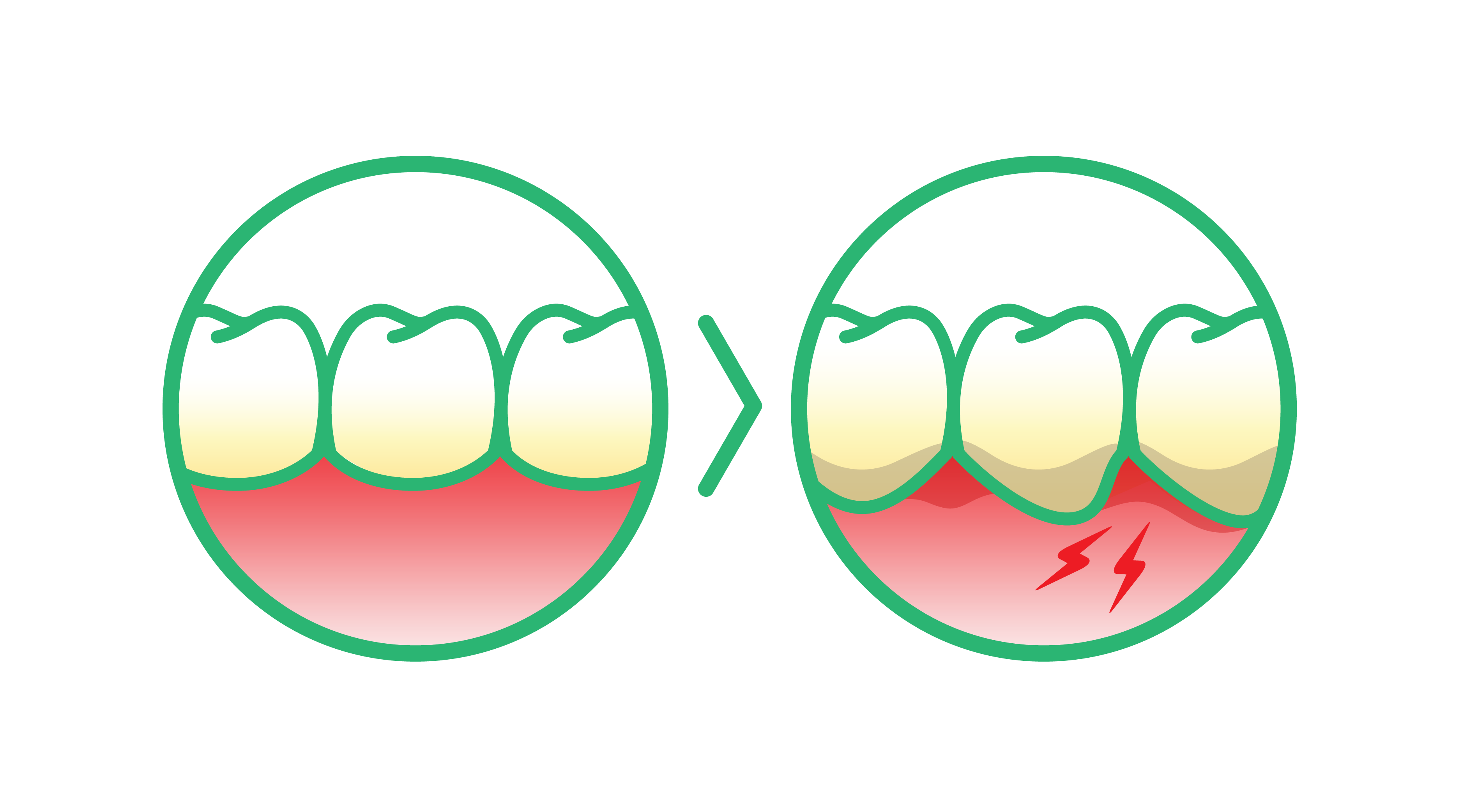
When gum disease strikes – often due to plaque buildup [5] – inflammation affects gums in several ways: swelling, tenderness, bleeding during brushing… Overall, gums are weakened, making them less apt at guarding the body against harmful bacteria. That’s why it’s so important to remove plaque and prevent buildup.
If gingivitis, early-stage gum disease, isn’t dealt with, it can progress to periodontitis, which involves permanent damage to gum and bone tissue around the teeth [6]. When this happens, professional intervention is required to halt the progression of the disease and prevent tooth loss [7].
Despite the high stakes, gum disease remains a reality for many people. Statistics show that gingivitis affects between 50% and 90% of adults worldwide, depending on its exact definition [8], while periodontitis affects up to 50%. But enough about stats! You can do a lot, from proper oral care to nutrition, to help prevent gum disease. Read on for our advice and tips.
What can I do?
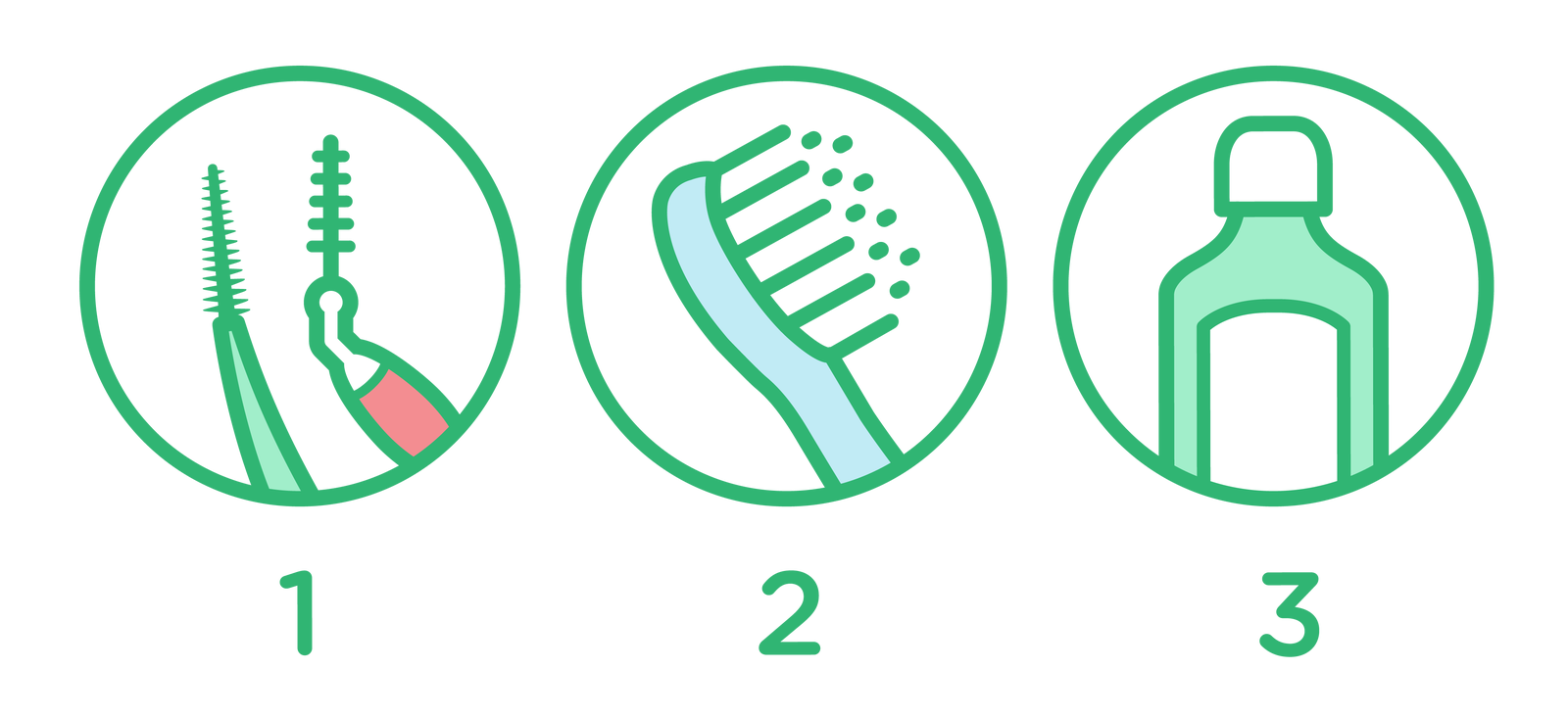
Tackle plaque with effective oral care
When it comes to gum inflammation, you’ll often find that plaque buildup is the culprit [9]. Indeed, the bacteria in plaque produce toxins which irritate gum tissue, causing inflammation. Your best defense is regular plaque removal from all tooth surfaces. It comes down to three easy steps: interdental cleaning, toothbrushing, and rinsing.
Cleaning between your teeth should be your first step. Often neglected but oh-so-important! Indeed, your interdental spaces are a hot spot for food, bacteria, and, therefore, plaque. There are various tools to help you with this: interdental brushes, rubber interdental picks, or floss. Floss is great if you have very tight interdental spaces. If that’s not the case, we recommend trying interdental brushes or rubber picks, as both have been proven to be more effective than floss at removing plaque from between teeth. Picks are super popular for their ease of use and how good they feel – they gently massage your gums! Choose the tool you find most comfortable. What’s more important is that you use it every day!
Make sure you brush your teeth twice daily for at least two minutes. Brushing gently with a soft toothbrush is essential to avoid irritating your gums. Don’t forget to brush along the gum line where food and bacteria often get stuck and form plaque. If your gums feel tender and look inflamed, we recommend using toothpaste and mouthwash formulated to fight existing plaque and prevent the growth of bacteria.
To finish off, we recommend rinsing with a non-aggressive mouthwash. For more details on how to perfect your oral care routine, check out our video. Don’t forget to visit your oral health practitioner twice yearly for professional cleaning and personalized care.
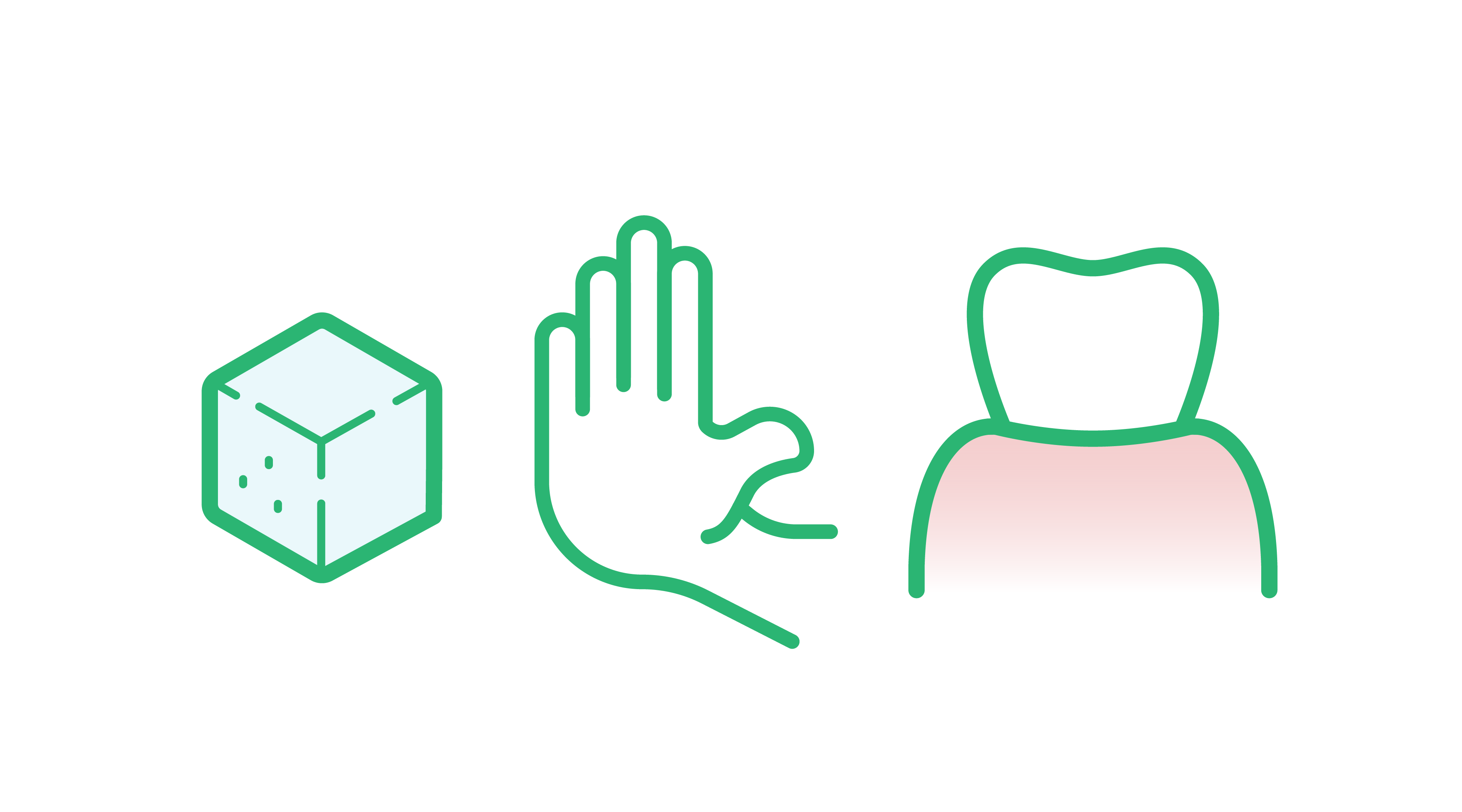
Stop feeding your plaque and protect your gums
Small dietary changes can help you prevent plaque buildup and protect your gums and teeth. Limiting sugar intake is our main recommendation, as sugar plays a major role in plaque formation [10]. If you have a sweet tooth or enjoy snacking throughout the day, brush your teeth afterward! Eating raw, crunchy fruit and vegetables can help remove plaque from between teeth [11]. Try apples, celery, carrots etc. Vitamin C and other nutrients found in fruits and vegetables can also help protect gums from cellular damage and bacterial infection [12].
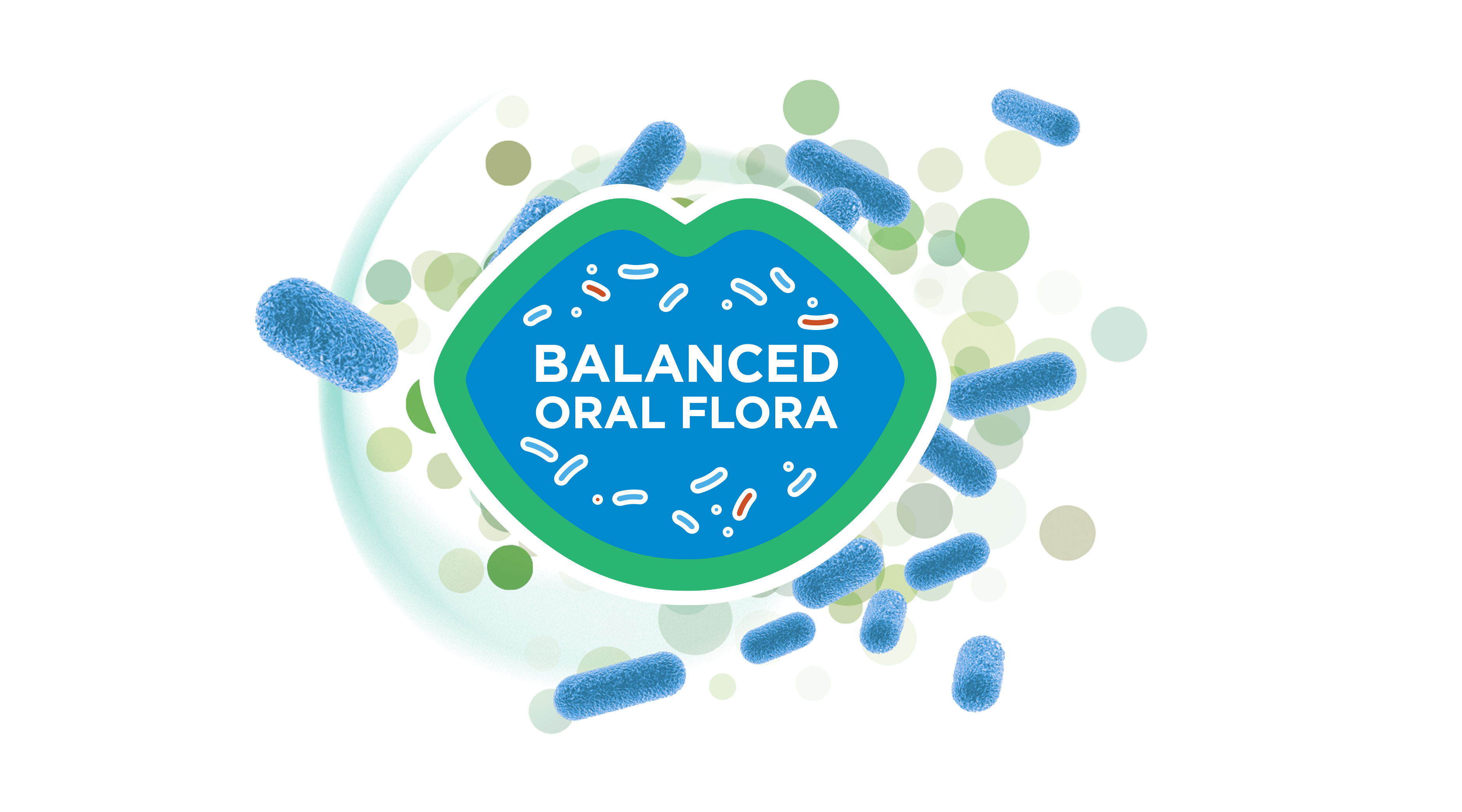
Food supplements, like probiotics, can also benefit your gums and teeth by supporting the growth of good bacteria, helping to maintain a healthy oral ecosystem.
Good to know
While plaque is the leading cause of inflammation in most cases [13], several lifestyle factors and life events—such as smoking, stress, pregnancy, and certain medications—can also contribute [14].
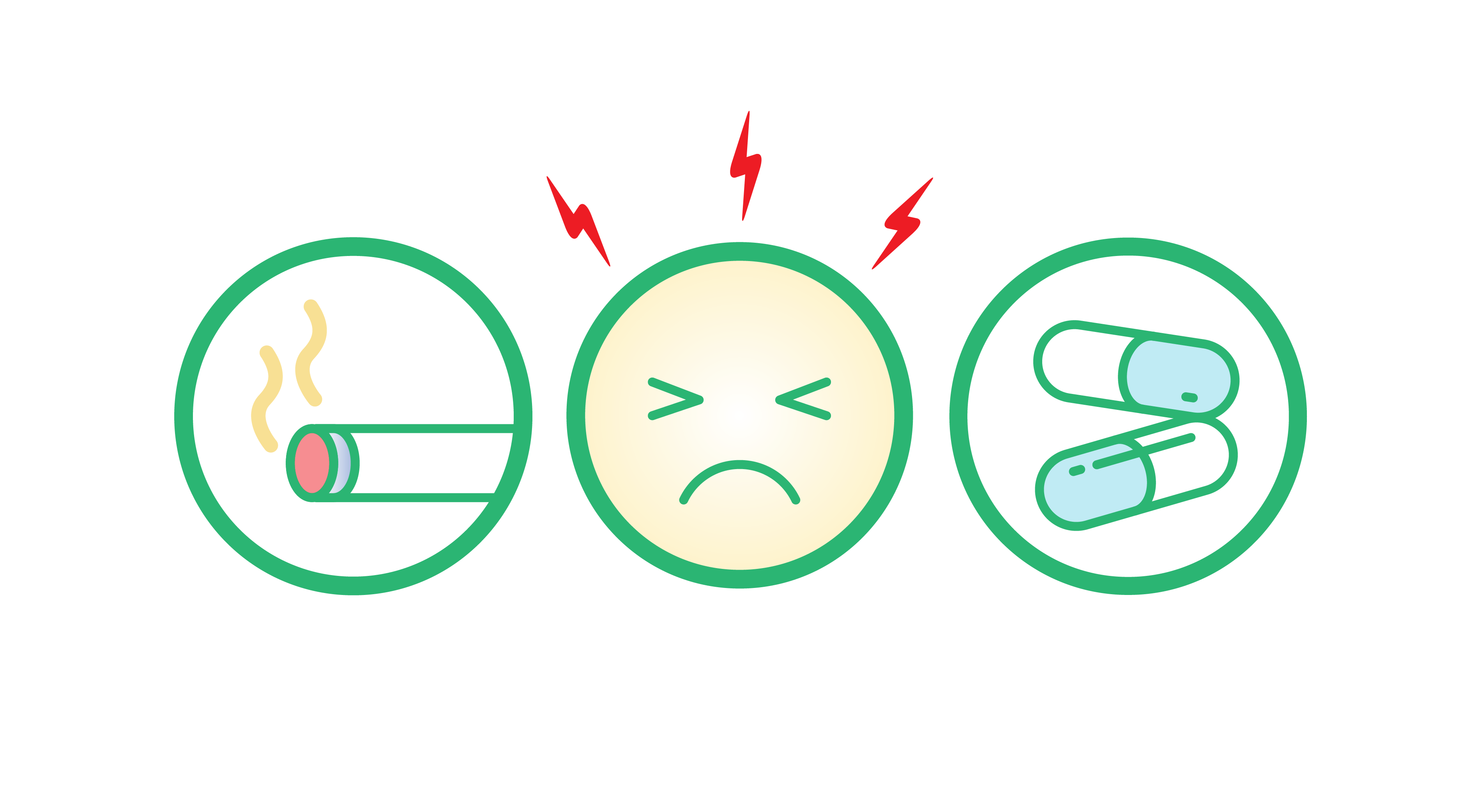
Some factors are within your control, while others aren’t. But it’s essential to be aware of them and raise any concerns with your dentist or hygienist so they can recommend appropriate oral care.
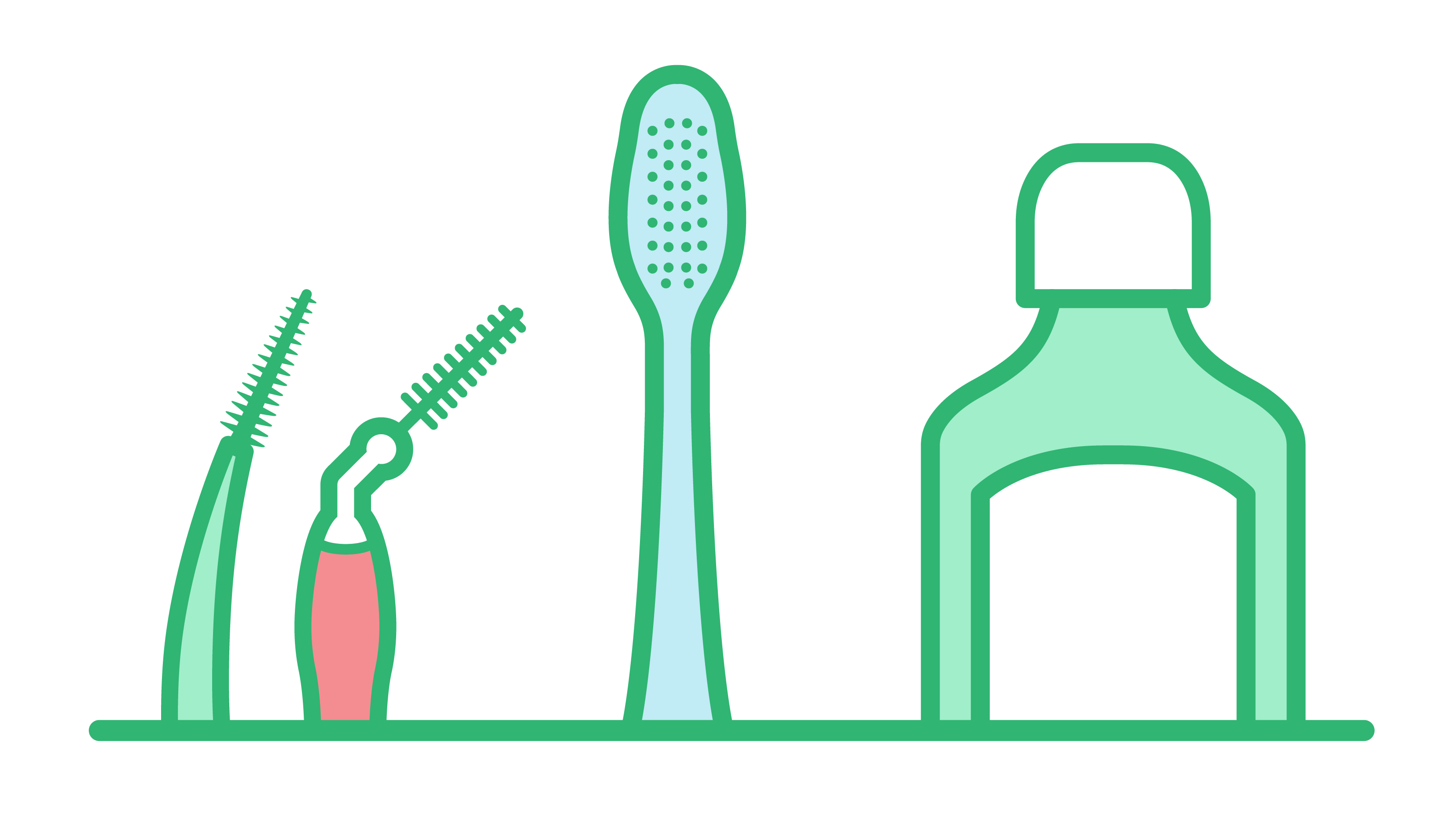
Take care of your gums and body by controlling plaque
- Healthy gums are essential for a healthy mouth and body. Unhealthy gums can increase the risk of developing or aggravating systemic conditions such as diabetes, stroke, and heart disease. The better you protect your oral health, the better your overall health.
- Gum disease is often caused by plaque. To prevent buildup and protect your gums against inflammation, adopt a 3-step oral care routine and visit your oral health practitioner at least twice a year.
- Plaque tends to accumulate around the gum line and between the teeth, where it can easily irritate gums. Remember this when brushing, and ensure you clean between your teeth every day!
